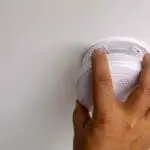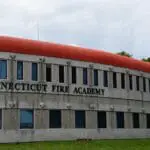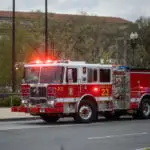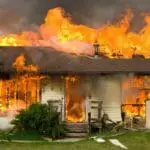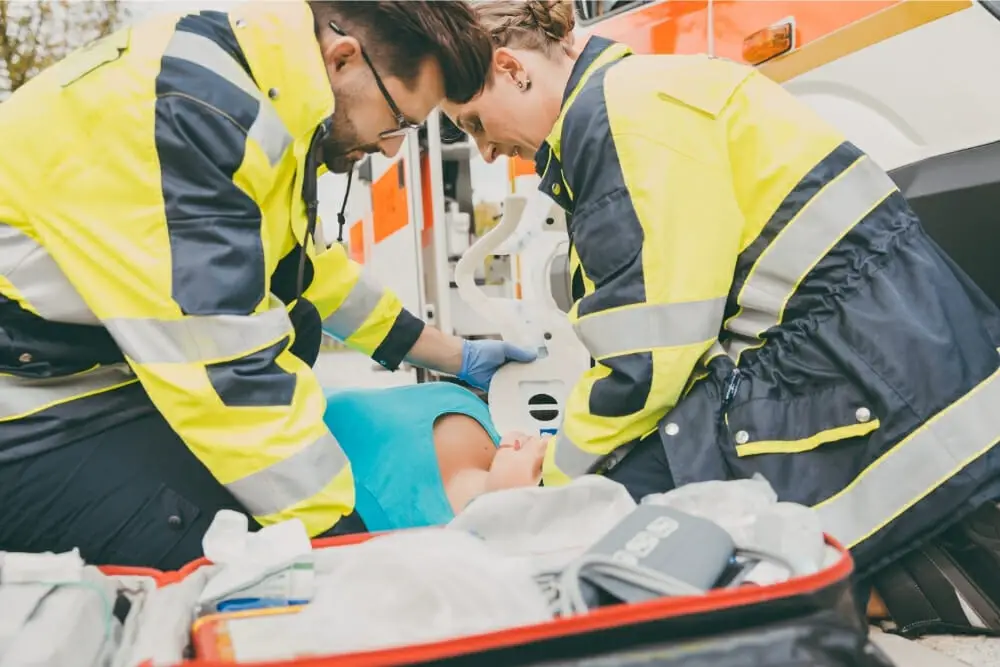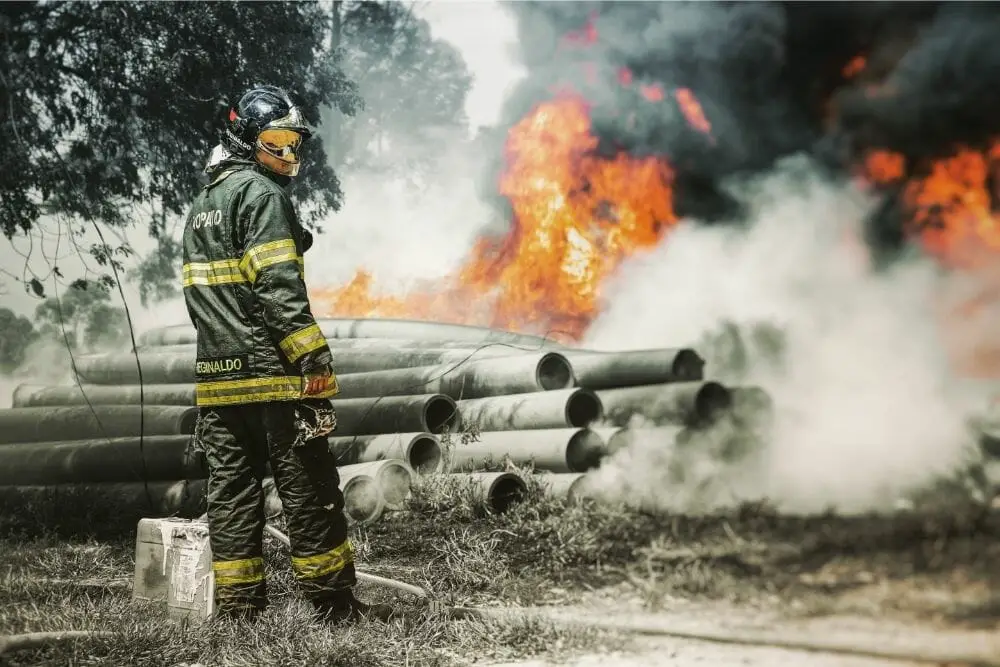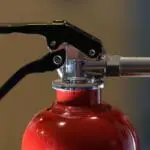Thinking about becoming a firefighter?
Whether you are aspiring to be a volunteer firefighter or a paid, professional firefighter, one of the main steps you will have to take, and pass, is the Fire Academy.
Fire Academy is where you will learn all the skills and knowledge necessary for becoming a firefighter. Fire Academy will also mould you to be physically fit, as well as teach you the right work ethic for becoming a firefighter as part of a collective team.
At some point in your journey to becoming a firefighter, you will have to pass Fire Academy - whether it is after the hiring process with a specific fire department or as a college and university degree to earn Fire Academy 1 and Fire Academy 2 certification.
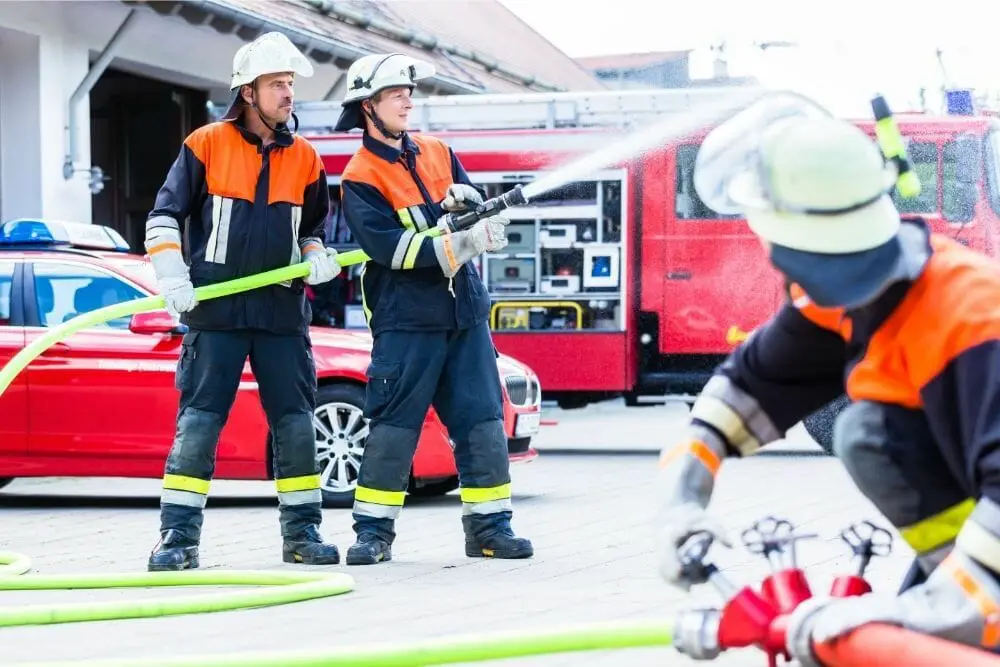
But how hard and how long is Fire Academy? And do you have what it takes?
This guide is here to provide you with everything you need to know.
Firefighter 1 And 2 Certification
Firefighter 1, and Firefighter 2, are certifications you can earn through college and university degrees, qualifying as Fire Academy training.
However, you will also have to partake in Fire Academy recruit training after being hired by any fire department.
You might be asking, then, why do I have to do Firefighter 1 and Firefighter 2?
You don’t have to. However, earning these certifications, or even just Firefighter 1, will make your application more appealing to fire departments.
This is particularly useful for making yourself stand out. As fire departments hire in batches, there is usually a lot of competition involved. And, for that reason, it can take a long time - sometimes years - to be accepted.
Therefore, it is worth pointing this out! Depending on the amount of dedication, optimism and time that you are willing to invest, it might be worth getting your Firefighter 1 and Firefighter 2 certifications.
Having these certifications will also make you more prepared for recruit training with the fire department.
Firefighter Basics
This is the meat of Fire Academy training and what most want to know before considering being a professional firefighter as a paid profession.
At a glance, Fire Academy - whether it is earning your Firefighter 1 and 2 certifications or with a fire department after being hired - is where you will learn and master the firefighter basics.
Being a firefighter isn’t just about putting out fires and extricating people from burning houses.
It involves understanding the science of fire, firefighter equipment and gear, medical procedures, how to apply water and fire extinguishers to fight fire, safety protocols, hazardous materials, rope tying, ladder usage and more.
All of that might sound daunting, but that is what you will have to learn - through daily classes, manipulative skills evolutions, tests, physical training and live-fire drills.
For a complete summary, here is what you can expect to learn:
- Fire behavior and fire science
- Fire control and fire suppression
- Firefighter safety
- Personal protective equipment (PPE)
- Radio and field communication
- Fire hoses and nozzles
- Water supplies and fire extinguishers
- Fire alarms and protective measures
- Ropes and knots
- Ladders
- Forcible entry
- Wildland firefighting
- Extrication
- Salvage and overhaul operations
- Hazardous materials (HAZMAT)
- Ventilation
- Fire department history
Physical Training
Where time is of the essence, you have to be physically fit. It goes without saying that being a professional firefighter involves a lot of physical work - whether it’s salvaging, extrication, running up stairs or carrying a patient who needs emergency care.
Being a firefighter involves a lot more physicality than you might initially think. But it doesn’t just mean being physically strong, but also having good endurance and stamina.
Throughout Fire Academy training, you will be trained and tested for your physical ability. This includes daily workouts and exercises that are similar to military training.
Expect to be doing sit ups, push ups, pull ups, squats, planks and various cardio routines, such as stair running while wearing a weighted vest. Of course, the more fitter you are going into the Fire Academy, the more prepared you will be.
The various evolutions, exercise drills and manipulative skills training will also challenge you physically. In manipulative training in particular, you will be completing various drills wearing and using equipment and various firefighter tools.
If you want to be a professional firefighter, the sooner you start working on your physical fitness, the better!
Academic Study
Fire Academy involves as much classwork and studying as it does physical training, which is often overlooked.
To become a firefighter, you will have to understand and learn the science of fire and fire behavior, life-saving medical procedures, how to act under pressure in any given emergency situation, how to use and apply different types of equipment, and more.
This is done through daily classes, lectures, hands-on practical lessons, tests and exams.
As a result, you can expect to be doing as much studying, learning, note-taking and information memorization as physical training.
Skills
What skills do you learn at Fire Academy?
From the above, it’s clear that you will adopt skills such as how to act under pressure, how to use and operate different firefighting tools and equipment, how to control and suppress fire, and how to work as part of a team.
But that is just a summary!
The skills you learn at Fire Academy go beyond basic firefighter training. These are life skills that are invaluable to have under your belt. You will learn organizational skills, teamwork skills, medical skills, communication skills and more.
That fact is… the skills you gain will not end with Fire Academy training. As you become a professional firefighter and advance into your career, you will constantly develop new skills to apply both in the field and in the real world.
Mentality
Due to the physical tests and amount of studying involved in becoming a firefighter, it’s worth mentioning that you need to have the right mentality.
Of course, you should not join the Fire Academy if you are not committed to becoming a firefighter.
However, this is a very different thing when you are actually at Fire Academy, tired from the day’s drills and exercises, classroom lectures and housework - yet still have to squeeze in some studying before going to bed.
With that said, you have to stay mentally ready for both the physical and academic challenges that you will face day in, day out at the Fire Academy.
Firefighter Work Ethic
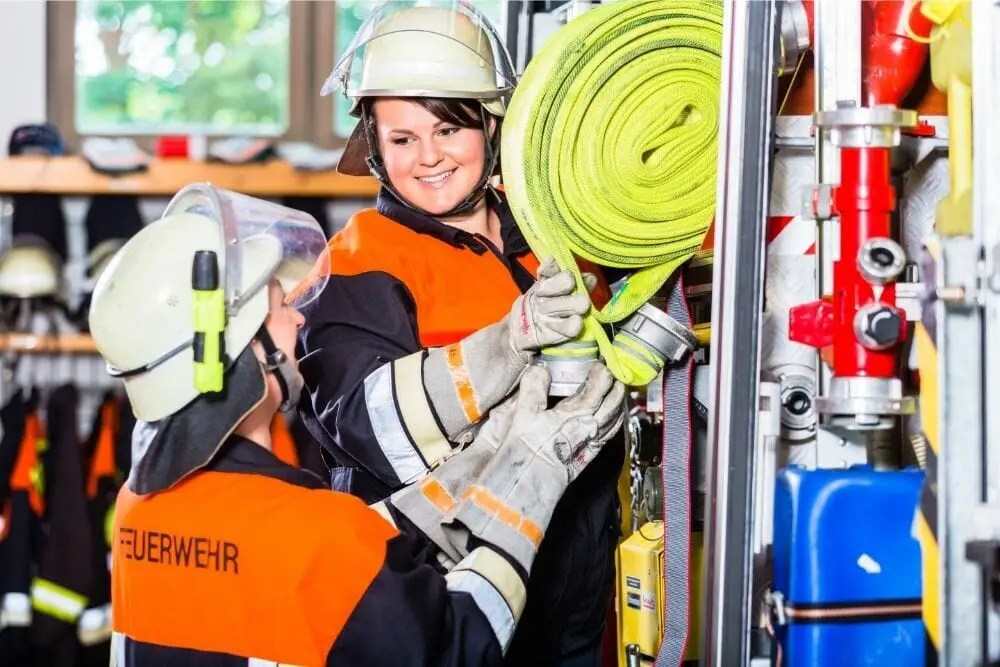
Firefighters are members of the public service, as well as members of a fire department team. Therefore, firefighting comes with a certain work ethic and mindset that must be adopted as part of a long-term lifestyle.
Part of applying to be a firefighter is a background check to make sure that you have a clean record. For that reason, you have to maintain an upstanding public reputation, both offline and online.
Firefighting is also a teamwork job.
No fire is suppressed by one firefighter alone; it is a team effort that requires each member to work together, communicate with one another, accept criticism and support and understand each other’s strengths and weaknesses to get the job done efficiently.
Whether you consider yourself a team player or not, it is something you will have to learn and apply at Fire Academy and throughout your career as a firefighter.
Fire Academy Schedule
With all the physical training, classes, lectures and manipulative drills that you have to undertake, you can be sure that Fire Academy involves a rigid schedule that is not much different from a five-day, full-time workweek.
While all Fire Academy degrees and fire departments are different, the typical daily schedule can last from 7 am to 5 pm.
This can involve housework or department chores, written exams, classes and lectures, physical conditioning and training, manipulative drills, evolutions and personal studying.
Fire Academy Requirements
Before joining Fire Academy, there are a number of requirements you need to meet in order to be accepted.
These include minimum requirements - ranging from your age to how physically fit you are - to more specific requirements such as becoming an EMT.
You can also earn additional qualifications to make yourself more prepared and appealing for the application process.
Minimum Requirements
To be accepted for the Fire Academy, here are the basic or minimum requirements:
- 18 years of age
- Legal US citizenship
- High school diploma or equivalent
- Physically and medically fit (CPAT)
- The entry fee
EMT Certification
Alongside the above, another minimum requirement is to have EMT certification.
EMT training - Emergency Medical Technician - is a program that you will have to complete to earn the certification. The program lasts up to six months and involves all the basic life-saving and emergency patient treatment skills you need to know before applying to be a firefighter.
Whether you are applying for fire department candidacy or a Fire Academy college degree, being a certified EMT is something you will have to obtain beforehand.
Optional Qualifications
There are optional qualifications that you can choose to earn before applying to Fire Academy or as a firefighter candidate for a fire department. These will make your application more attractive and will also make you better equipped as an aspiring firefighter.
One of these is Paramedic training. This will complement your EMT training and extend your knowledge in treating patients, responding to health emergencies, administering medicine and so on. It involves classes and practical exams and can last over a year, depending on the program.
Another qualification you can earn is any kind of degree in fire science. Fire Academy itself involves studying fire behavior and fire suppression, so any degree in a fire-related field is going to prove beneficial in the long run.
You can also undertake some volunteer work, whether for a charity or a local community program. This, in particular, will prove to any fire department that you are a community-orientated person who shows a willingness to serve the public - an integral quality of being a firefighter.
How Much Does Fire Academy Cost?
The cost to join a college or university Fire Academy course (Firefighter 1) can be several thousands of dollars. This is worth knowing in advance so that you can start saving. And if you are dedicated to becoming a firefighter, then the cost of Fire Academy should not seem too steep.
Fire Academy recruit training, organized by the fire department for accepted recruits, does not cost, however. In fact, you will be getting paid at this point as a firefighter recruit.
Remember: earning Firefighter 1 and 2 certifications is optional. But if you want to stand out from the competition and effectively speed up the process of getting hired as a firefighter recruit, it could be worth your time, effort and money.
What Happens After Fire Academy?
Fire Academy generally lasts around six months. But what happens after?
After you have completed a Fire Academy degree course, you can begin applying to fire departments or continue to bolster your application with more qualifications, whether that is volunteer work or becoming a certified paramedic.
After completing Fire Academy as a paid recruit, you will then move on to the probationary period. At this point, you can consider yourself a working firefighter.
Firefighter Probation
The probationary period comes after completing recruit training and is the final phase before you become a professional firefighter in name.
During the probationary period, you will be carrying out public firefighter duties for your fire department with a full salary, which can last a year or two years depending on how well you perform.
You will be under constant supervision by the fire department supervisor, who will be monitoring how well you apply your skills and training, as well as how well you are working in a team as part of that specific fire department.
Once you are ready to become a professional firefighter, your supervisor will officially end your probationary period.
So, Are You Ready?
Let’s recap.
A Firefighter 1 degree lasts around six months. Depending on the program, it will cost several thousand dollars.
Fire Academy recruit training with a fire department can last the same amount of time, but you will be getting paid as a firefighter recruit.
Firefighter 1 and Fireghter 2 degrees are optional, but earning these certifications will significantly raise the odds of you getting accepted as a fire department recruit.
Whether you think it sounds like a long time or not, the training is the part that you want to be as ready for as possible.
Fire Academy training is physically and academically demanding. You will have to dedicate full-time hours to the training, which will involve long days that start early in the morning and end in the evening.
Throughout this time, you will be attending classes and lectures, taking written exams, studying and memorizing notes, in addition to exercising, completing fitness tests and applying your skills in manipulative training drills.
In conclusion, Fire Academy is long and it is hard. However, if you are truly committed to becoming a professional firefighter, it is something you will enjoy, despite how challenging you may find it.
You will not only acquire valuable life skills, but meet great people - sometimes lifelong friends - along the way.

